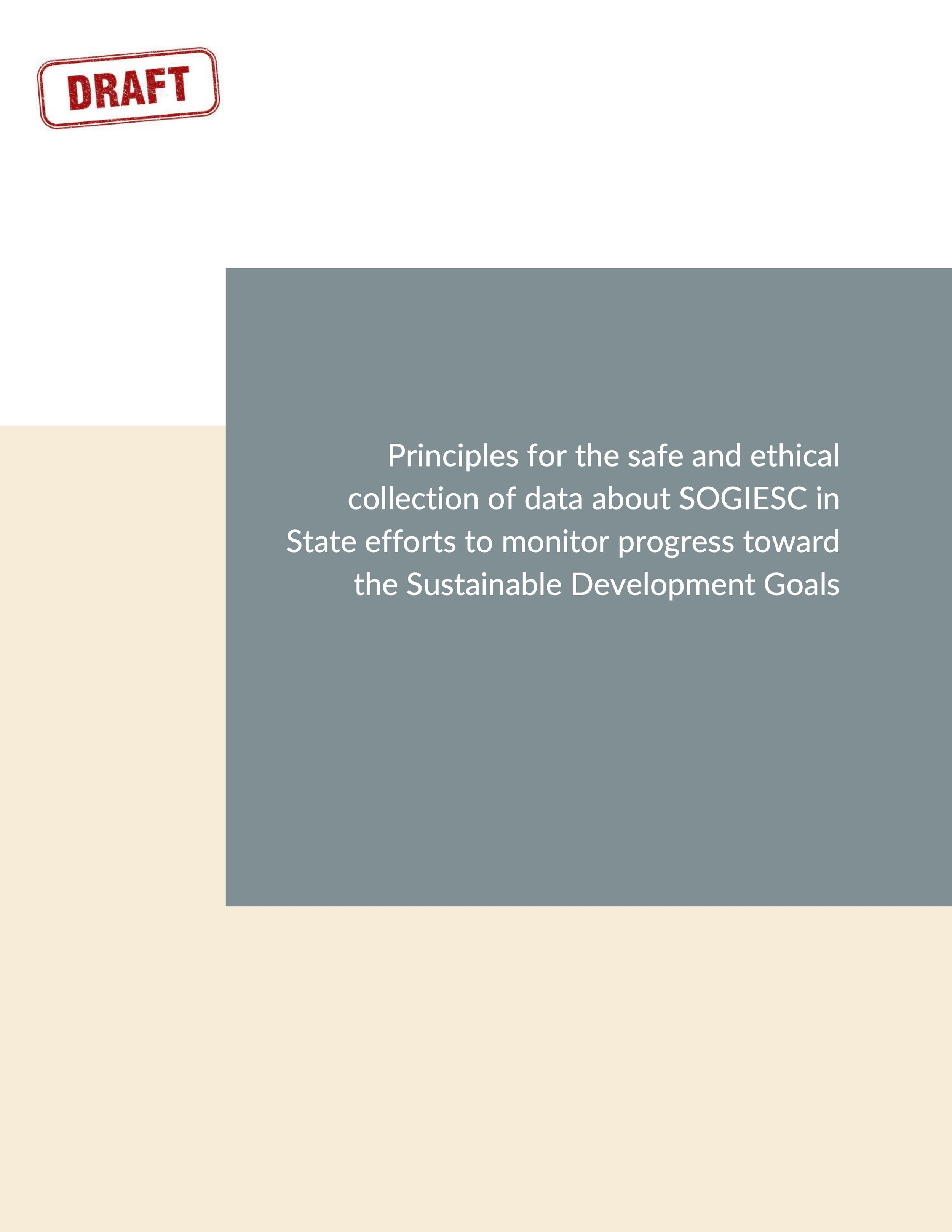UNDP Principles for the safe and ethical collection of data
I drafted this document in connection with the launch of the UNDP LGBTI Inclusion Index. Implementation of the Index will require governments to collect statistical data about LGBTI populations. This identifies seven principles:
Privacy
Do No Harm
Community Participation
Relevance
Lawful and Legitimate Use
Transparency and Accountability
Independence and Impartiality
The principles address two different sets of concerns. One set of concerns is about the methods used to collect, store and use data related to sexual orientation, gender identity and expression and sex characteristics. Another set of concerns relates to the legal framework and institutional policies intended to prevent the misuse of data and increase the quality and usefulness of data.
The principles recommend that LGBTI civil society play a significant role in answering questions about do-no-harm and providing guidance and expertise on local identities and priorities. Except in a very small number of countries, LGBTI NGOs have not had experience engaging with statistical organizations or understanding and monitoring State activities related to LGBTI data. Effective participation will require efforts to build this capacity in LGBTI civil society. This means funding, peer-to-peer collaboration, global leadership and technical assistance, and an expansion of the mission of LGBTI NGOs.
I am frequently asked whether the European Union General Data Protection Regulation (GDPR), Brazil’s Lei Geral de Proteção de Dados (LGPD), or the California Privacy Rights Act (CPRA) are relevant. For the most part, State activities related to LGBTI data collection fall into one or more of the massive exemptions or exceptions to these policies. Thus far, these laws have not been implemented in a way that would impact the activities we are talking about.
To complicate matters, the UN OHCHR has issued well-intended, human rights-based guidance regarding the processing of data concerning sexual orientation and gender identity under these laws. I have never met a staff person for OHCHR who isn’t very smart and completely lovely, but this guidance is incoherent and unworkable. After several years of seeking clarification, I have never received a response and I’ve never seen the guidance on this narrow issue affirmed by anyone. Given this, any further analysis of the guidance is not useful.

